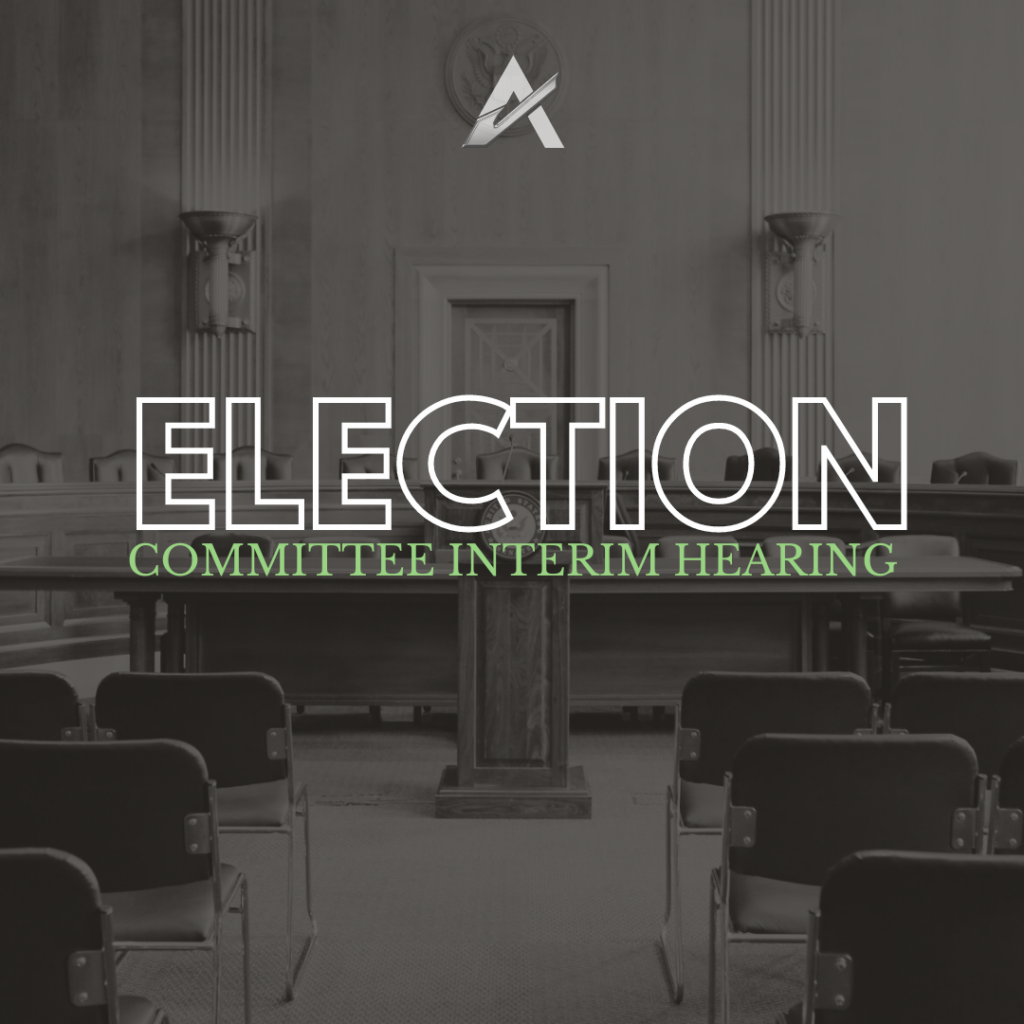On June 12th the Texas House Elections Committee held an interim hearing to discuss three issues, two regarding bills passed earlier this year in the 88th regular session of the Texas Legislature and the other regarding an issue currently garnering a lot of media attention, ballot secrecy.
The Committee heard invited testimony only, but concerned Texans could electronically submit comments during the hearing. Much of the testimony was provided by Christina Adkins, Director of Elections at the Office of the Texas Secretary of State (SOS).
The first subject was SB 1070, a bill that rewrote the section of the Election Code on the interstate voter registration crosscheck program to exclude private sector systems like ERIC that did not protect the privacy of voters.
In her submitted comments Advancing Integrity President Christine Welborn said, “Advancing Integrity wholeheartedly endorses the decision to terminate the ERIC partnership in which Texas was previously engaged. As demonstrated during the 2023 legislative session, it is evident this partnership no longer aligned with the best interests of our state. Instead, we urge you to explore partnerships with other states to prevent duplicate voter registrations while safeguarding the rights of all eligible voters.”
She went on to stress the importance of the accuracy of Texas voter rolls, especially in preventing non-citizens from voting in Texas elections. Welborn also rebutted Vice-Chair John Bucy’s attempt to promote online voter registration. To read her full comments, click HERE.
Next the committee addressed SB 1750 which removed the ability of counties with a population larger than 3.5 million to appoint an Elections Administrator. Currently, this only applies to Harris County and it meant that election duties returned to the County Clerk and the voter registrar duties returned to the County Tax Assessor-Collector.
Advancing Integrity has covered the debacle that was Harris County Elections under its Election Administrators and the alarming failures revealed by audits performed by the Secretary of State’s Office. Christina Adkins testified that Harris County has made marked improvements under Harris County Clerk Tenishia Hudspeth and Hudspeth herself answered questions from the Committee and delivered testimony.
Finally, the Committee addressed ballot secrecy. The inclusion of this issue in the hearing was a response to recent news of an emergency advisory from the SOS. The offices of the SOS and the Attorney General were compelled to respond after the alleged ballots of two notable voters were posted publicly.
“First of all, Advancing Integrity strongly denounces the individuals responsible for publicly releasing the alleged ballots of a few individuals, a sinister form of doxing. The secrecy of the ballot must be protected.”, began Christine Welborn’s submitted comments.
Committee members questioned Adkins and representatives from election system manufacturers ES&S and HART InterCivic to determine the extent of the problem and potential solutions. Were the voters linked to the ballots using an algorithm or was it simply a process of elimination?
The most likely scenario, and the only one where evidence is available, is a process of elimination. Currently counties are required to post Early Voting Rosters identifying which voters voted on a particular day. Those reports also included the polling location. So, if someone is the only person from a particular precinct who voted a Republican Primary ballot on a particular day, that ballot could be picked out of the stack and tied to the voter.
While this is a problem that must be fixed, Welborn emphasized in her comments that protecting the secrecy of the ballot does not have to mean sacrificing transparency and auditability. “In the long term, Advancing Integrity supports careful study to find a balance between protecting ballot secrecy and auditability. We recommend the smallest amount of redaction possible to protect the voter while allowing for citizens to audit an election.”
There are more solutions than just redactions. Reforming how precincts are drawn, aggregating the results of smaller precincts, precinct-based voting, and shorting the Early Voting period are all options. All of which were covered in the remainder of Welborn’s comments HERE.

